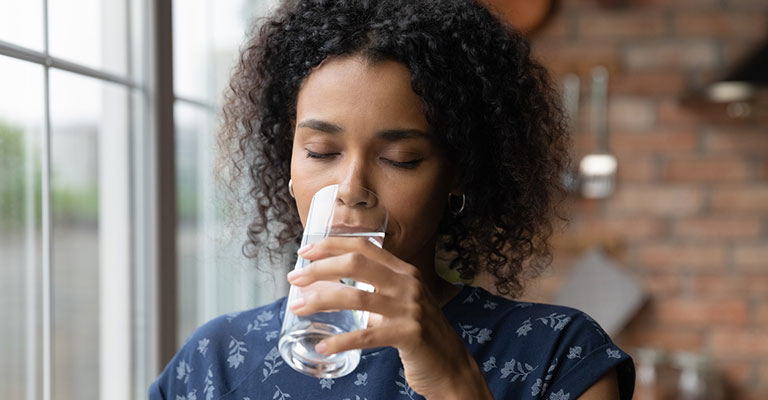Written in collaboration with Progyny network Nutritionist, Sally Saleh Kia, MPH, RDN, IBCLC, MCHES
Hydration plays a large role in supporting overall health – from regulating body temperature, to protecting organs, to supporting digestion. It may come as no surprise then, that hydration is essential when trying to conceive.
Drinking enough water ensures that both ovaries and testes are functioning healthily. For people with ovaries, insufficient hydration can alter cervical mucus, a substance that helps transport the sperm to the fallopian tubes for fertilization. In addition to its role in the fertilization process, cervical mucus can be a helpful tool in predicting ovulation and timing sex to increase chances of conception. When altered by dehydration, the capacity of cervical mucus to predict ovulation is too hindered. In people with testes, dehydration can result in diminished semen production and volume, as well as sperm quality.
While hydration needs vary person to person, experts generally recommend 12 cups of fluid per day for men, and 9 cups for women. These figures may fluctuate based on factors such as your exercise levels, weather, health status (for example, if you are suffering diarrhea, you should increase your fluid intake) and how much alcohol or caffeine you may be consuming.
Signs of dehydration
It is important to stay hydrated but understanding the signs of dehydration can help keep you on track and signal you to consume additional fluids. A few symptoms to look out for are:
- Dark colored urine (healthy, hydrated urine will be straw or lemonade colored)
- Fatigue or irritability
- Headache
- Dry or sticky mouth
How to stay hydrated
If you are having a hard time remembering to drink water, here are a few tips to help you stay hydrated:
- Carry a reusable water bottle with you throughout the day
- Add a wedge of lemon or lime, mint, or frozen fruit to your water for added taste
- Replace sugary and artificially sweetened beverages with water, sparkling water, or unsweetened and decaffeinated tea
- For water alternatives that still provide hydration, consider drinks like decaffeinated tea, seltzer, milk and 100% fruit or vegetable juice
If it feels difficult to prioritize that much water a day, consider sugar-free electrolyte beverages as another great option for staying hydrated, or coconut water. Fruits and vegetables are also great sources of hydration and electrolytes, and experts recommend including one to two servings with each meal or snack.
Hydration, coupled with vitamins and supplements, are an easy way to take control of your reproductive health during a journey to parenthood.
Progyny prioritizes whole-person wellbeing wherever you are on your family building journey, and members have access to ongoing support from Patient Care Advocates (PCAs) who can help provide more education and guidance. Please reach out to your dedicated PCA for additional information, and as always, speak with a provider for treatment consultation. Please note this content is for informational purposes and is not intended as a substitute for medical advice. Please consult with your healthcare provider about your specific journey.
